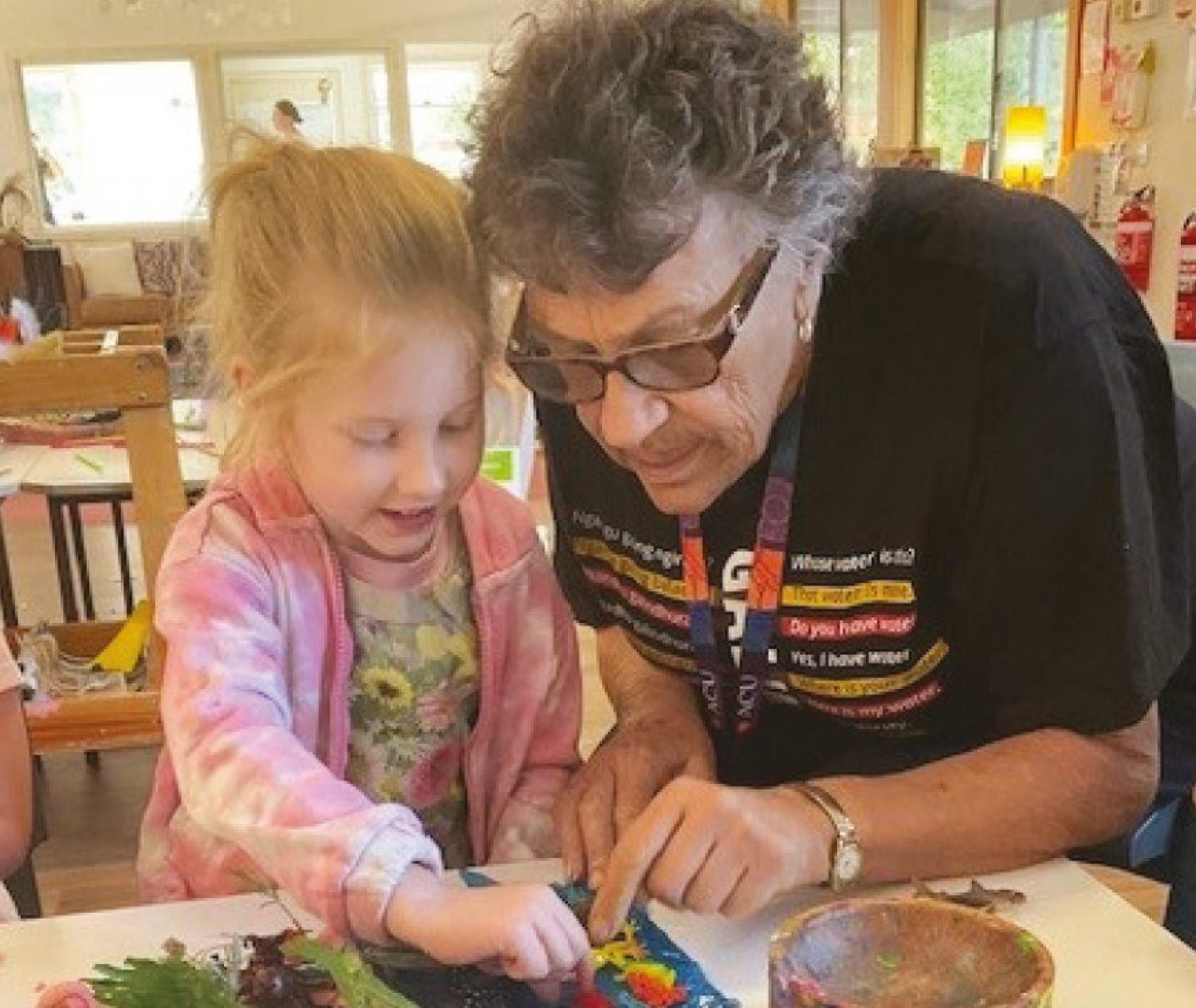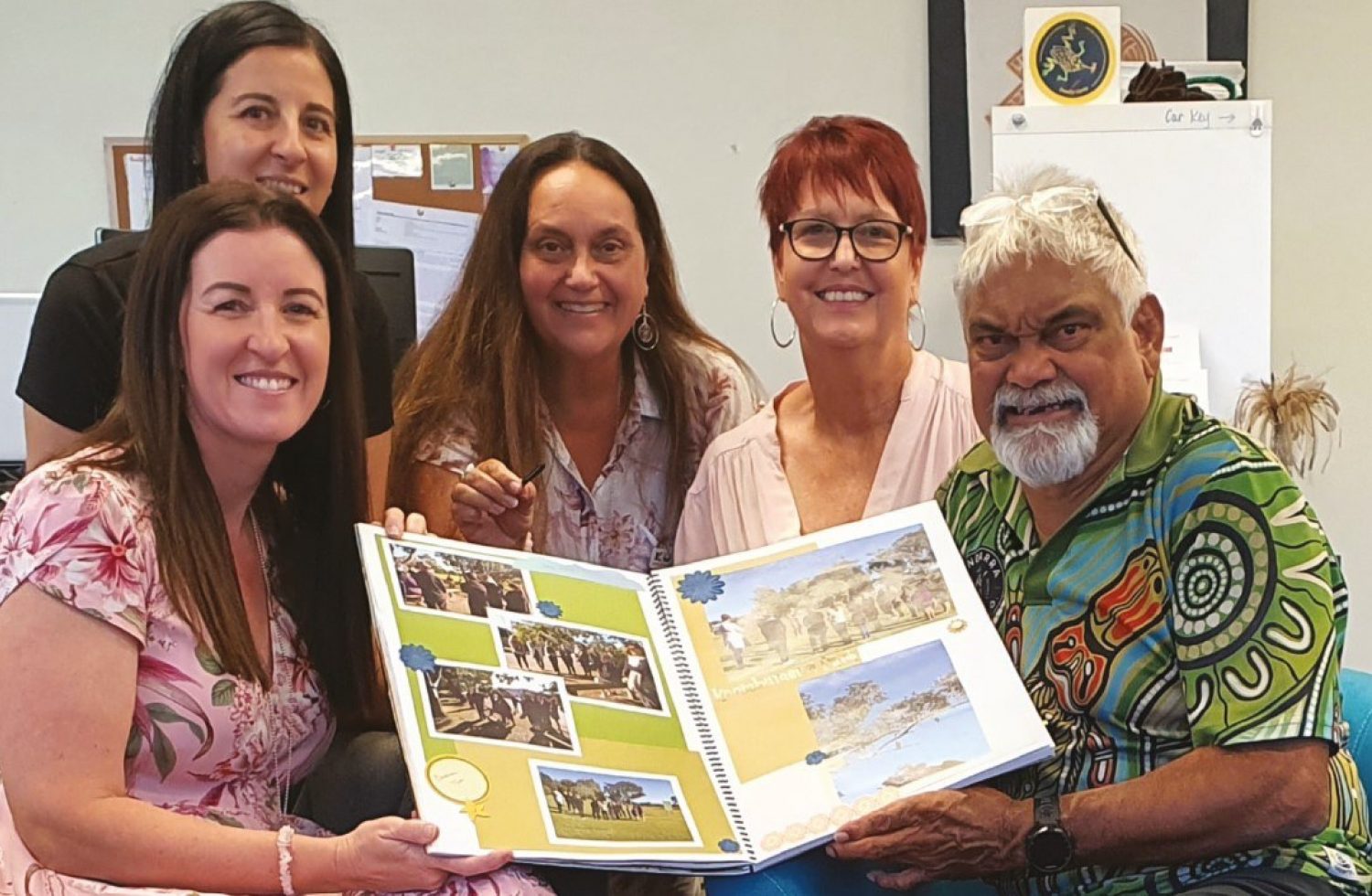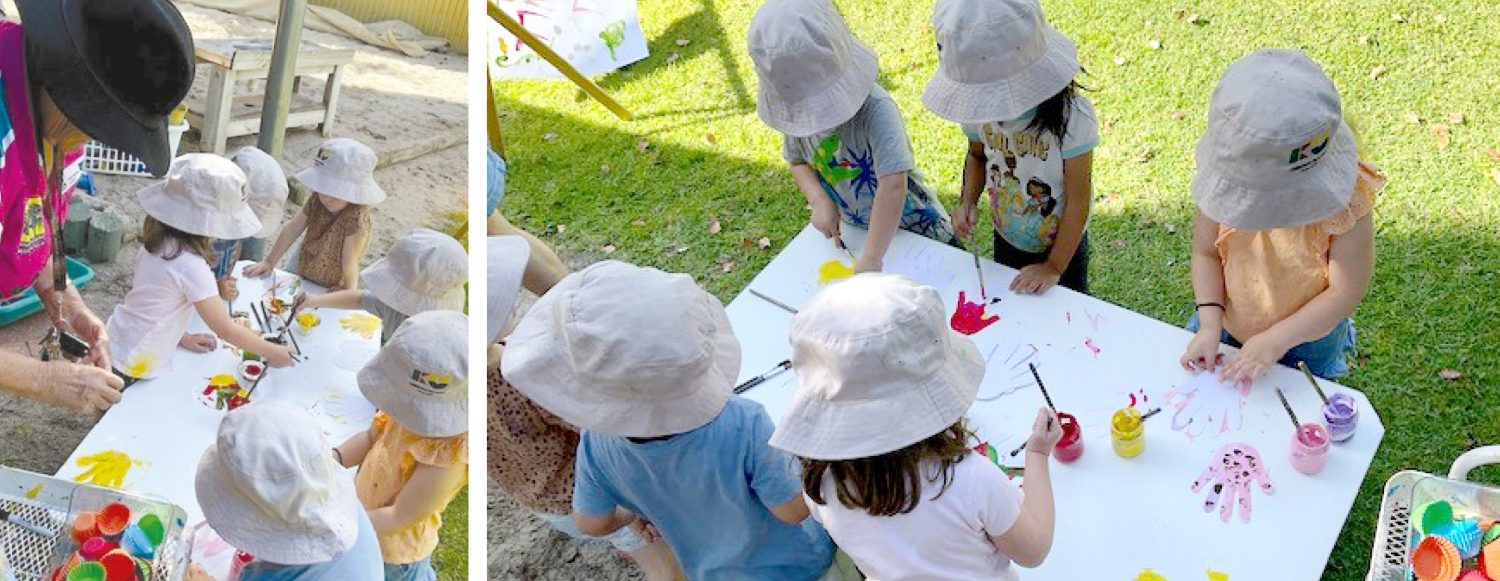KU has an unwavering commitment to elevating Aboriginal and Torres Strait Islander voices. Here are just a few initiatives that reflect the success of localised stories through the engagement, work and decision-making of Aboriginal and Torres Strait Islander Peoples.
KU’s Statement of Commitment
KU recognises we have an organisational responsibility to the revitalisation and advancement of the cultures, histories and beliefs of the First Nations Peoples of Australia as determined by them.
KU’s Statement of Commitment to Aboriginal and Torres Strait Islander Peoples was created in 2021 in consultation with our Aboriginal and Torres Strait Islander Advisory Group.
Ten principles of action underpin the Statement that strongly advocate for the self-determination of Aboriginal and Torres Strait Islander Peoples and align with KU’s organisational vision, purpose and values, through ethical and respectful practices.
We will...
- Actively seek, listen and respond to the voices of Aboriginal and Torres Strait Islander peoples, and advocate for their right to self-determination and equal participation in decision-making.
- Promote the United Nations Declaration of the Rights of Indigenous Peoples.
- Respect, protect and promote the rights, diversity of unique cultures and rich heritages of Aboriginal and Torres Strait Islander peoples, families and communities.
- Listen to the local issues of Aboriginal and Torres Strait Islander peoples and respond to what they fundamentally want for their communities.
- Acknowledge and accept that Aboriginal and Torres Strait Islander families and communities will determine how their children grow up culturally strong.
- Create career pathways and employment opportunities for Aboriginal and Torres Strait Islander employees across all levels of the organisation.
- Establish culturally acceptable, safe and supportive environments for all Aboriginal and Torres Strait Islander peoples who engage with our organisation.
- Facilitate informed cultural dialogue to increase employee capacity to recognise and challenge systemic inequalities.
- Create agency and provide opportunities for all Aboriginal and Torres Strait Islander employees to influence and inform their personal and professional learning experiences.
- Advocate for greater recognition, acceptance and privileging of the cultural knowledges, expertise and skill sets of Aboriginal and Torres Strait Islander peoples.
Mobo Jarjums - Tomorrow’s Children
The journey for the Gold Coast Inclusion Support Queensland (ISQ) team on Yugambeh Country began some years ago.
It started with knowing that by listening deeply and opening to reflecting on and learning more about Australia’s history and culture, they could make a real difference in the lives of educators, children and families.
As the team worked to develop community connections and enrich their appreciation of Australia’s cultural heritage, they were introduced to local Aboriginal woman, Billie Musk and local Elder, Uncle Allan Lena who have been invaluable guides on the journey both literally and figuratively.
Over time, a variety of opportunities have been initiated and facilitated by the Gold Coast ISQ team to support educators in connecting with and building capacity to embed Aboriginal and Torres Strait Islander perspectives.
One of these is the Mobo Jarjums networking group. The name means Tomorrow’s Children and was chosen by the group in consultation with Uncle Allan and Billie.
Formed with just 10 educators in 2019, today the community of practice continues to grow with over 70 services involved including local organisations and government departments.
In addition, a mentoring program has been established within the Mobo Jarjums group, providing an opportunity for educators to use their increased capacity and knowledge of Aboriginal and Torres Strait Islander cultures and practices, to share and mentor other educators so they too embed Aboriginal and Torres Strait Islander cultures into their services.
Service Director, Pollyanne Webb is grateful for the opportunity to be part of the mentoring program, and says it enabled her to reflect on her own understanding and knowledge of how to embed Aboriginal and Torres Strait practices so she could then support other educators.
“Becoming a mentor for the Mobo Jarjums allowed me to reflect on my own journey and challenges I overcame with moving one step at a time,” Pollyanne says. “Each step was not taken alone, but with friends, educators, sector professionals, children, Aunts and Uncles.”
“Without the input and guidance of Mobo Jarjums I wouldn’t be the Service Manager I am today or have the knowledge to share with my team,” - Pollyanne Webb, Service Director
Inclusion Support Queensland is funded by the Australian Government through the Inclusion Support Program.
Wiradjuri Language Program
An exciting partnership has been developed with the Wagga Wagga Aboriginal Education Consultative Group (AECG) to deliver a local language program in three KU preschools.
Connections between the Wagga Wagga AECG and KU were established in 2021 through Ashleigh Pengelly, KU’s Community Cultural Coordinator – a role funded through the KU Marcia Burgess Foundation.
This collaboration led to KU being invited to participate in a 40-week Wiradjuri Language Program from July 2022, administered and facilitated through the AECG and funded by the NSW Department of Education’s Ninganah No More Program.
KU Ashmont, KU Kangaroo and KU Kingfisher were selected to be part of this community led program due to the large number of Aboriginal children enrolled in the preschools.
In a relatively short time, the growth in understanding and use of Wiradjuri Language was evident across all three KU services.
The children’s interests were reinforced by their co-learning educators who helped build awareness of the Wiradjuri culture and created culturally respectful experiences and environments together with the local Aboriginal community – the knowledge holders and leaders of this process.
Now, children are sharing the words they have learned with their families to revitalise its broad usage throughout the community.
Christine Harris, Vice President, Wiradjuri Languages, AECG, Wagga Wagga says she is enthusiastic about working with KU’s preschools in delivering the program.
“The Community Cultural Coordinator has worked really well with us in coordinating Wiradjuri Language teachers for KU’s preschools,” says Christine.
“Ash is very respectful of our Elders, who have been part of the language program, and is happy to assist them in any way. Without this role, I don’t think the language program would have been successful,” Christine says.
Honey Bird community connections
Honey Bird is a KU work-based service dedicated to providing quality early education and care for children of Commonwealth Bank of Australia (CBA) employees, and sits atop a low-rise office block in Eveleigh, an inner southern suburb of Sydney.
In 2020, when families expressed interest in donating Christmas presents to a charity, Rachel Cunningham, Director of the service, began researching the local Aboriginal organisations that support young children, their families and community.
Rachel connected and spoke with the CEO of an organisation that knew families at a local playgroup who would be interested in receiving gifts. From there, the very early stages of a respectful community relationship began.
After some months spent building trust, KU’s Aboriginal and Torres Strait Islander Cultural Facilitator was invited to attend the playgroup to meet the families involved.
The purpose of those visits was to gently start to find out if and how KU would be able to support the parents. Those early conversations involved ideas like excursions for the playgroup to visit Honey Bird and Jiwah, an Aboriginal company specialising in cultural landscape and design. But there were even more impactful ideas waiting to evolve.
In 2022 a meeting was held between the playgroup coordinator, the CBA Senior Manager for Indigenous Engagement and Development and one of KU’s Education Quality Managers to discuss the possibility of scholarships being offered to local Aboriginal and Torres Strait Islander children to attend Honey Bird.
With CBA representatives on board, the team participated in the playgroup’s annual festival. A sponsored activation saw KU and playgroup educators working side-by-side to facilitate children’s play on the day.
And when Honeybee, another of KU and CBA’s work-based services ceased operating, CBA agreed for surplus resources to be donated to the playgroup and for families to use at home if they were interested.
Now CBA is considering ways to support employment opportunities for young Aboriginal women.
This story, and the relationship that is being fostered, is ongoing.



